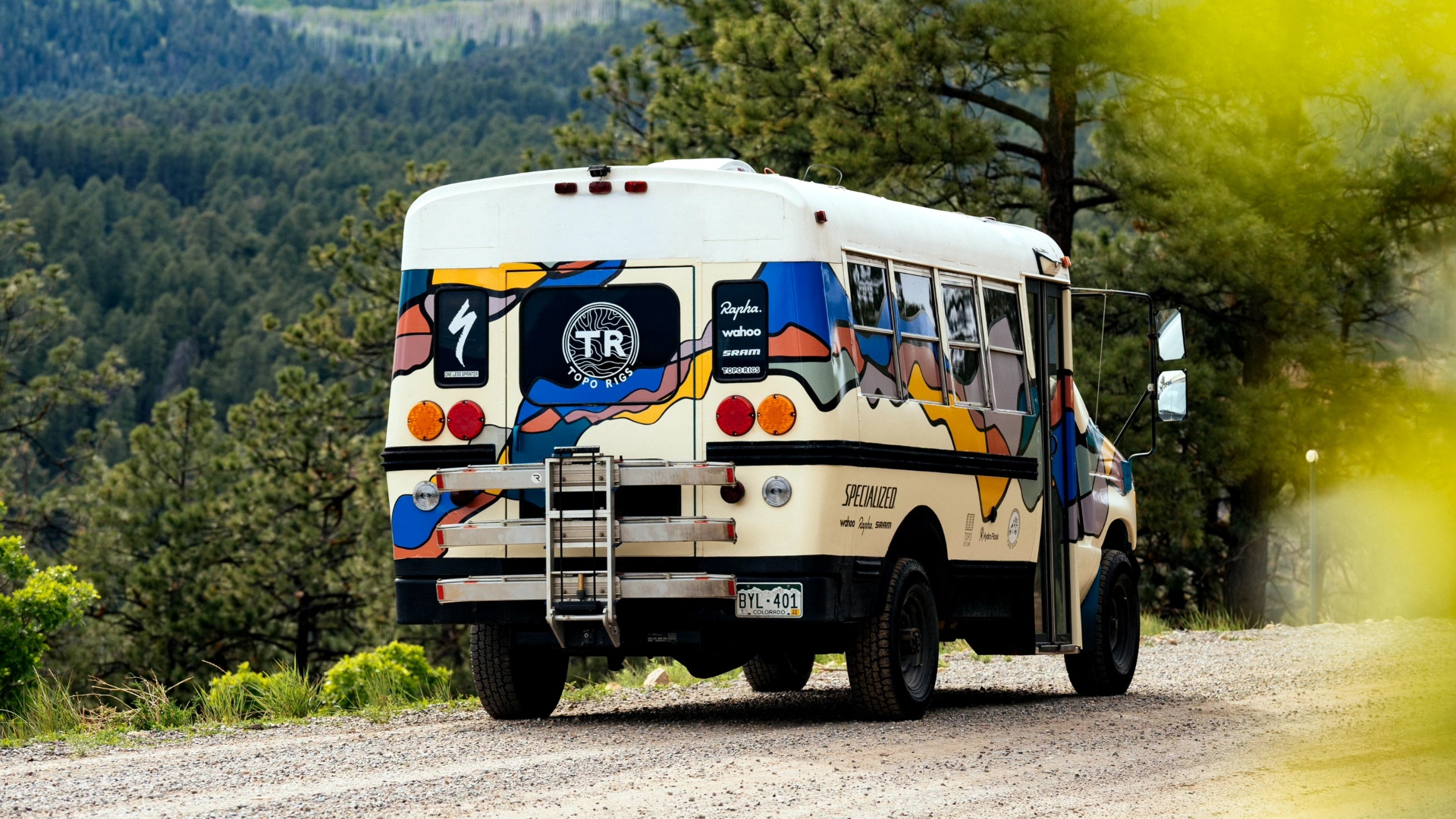Our man in the bunch 12: Stress
Cycle Sport’s Our Man in the Bunch series ran through the 2012 season, to popular acclaim. An anonymous professional rider sent us a series of dispatches from the peloton, covering all subjects from money, through media to management and more. We reproduce the series here.
Words by Our Man in the Bunch
Illustration by Simon Scarsbrook
This article originally appeared in Cycle Sport March 2013

For most people reading this, cycling is a hobby, a way to relieve stress, not create it. However, for those of us earning a living from it, it is a job, and like any job, there are stresses involved.
I’m not going to write a column in an attempt to make you feel sorry for us. After all, we are doing what we love and getting paid for it too. But, for me at least, there are times, occasionally, when I wish I could get away from it all and do something, well, a bit more normal. Cycling consumes us, there is rarely a moment, even away from the bike, where I do not think about what I am doing and how it could affect my form, whether that be what I’m eating or drinking, how much I’m stood on my feet or how much sleep I’m getting.
Travel is more stressful than it sounds. On top of the 25,000 kilometres or so we ride on our bikes each year, there are the endless flights, car journeys and team bus transfers throughout the season. Fortunately, I don’t live near to a Ryanair airport, so immediately I have 75 per cent less stress than those who do.
Get The Leadout Newsletter
The latest race content, interviews, features, reviews and expert buying guides, direct to your inbox!
You get into a routine with travel, although that blasé attitude often means that you come close to missing flights. I have never actually missed a flight to a race, but on one occasion I thought I had. I was late getting to the airport, partly because of some heavy traffic, but mainly because I had left the house too late. I panicked, but I was lucky in the fact that the flight had been delayed too, so
they let me on.
Just a couple of years ago, I had a near miss of a different kind in the Tour of Oman. I’d arrived with a few team-mates a couple of days before the race started. We’d arrived particularly late (local time is three hours ahead of Europe), but had a good sleep, and just did an easy ride the next day with the team.
The following day, for the first stage of the race, we had a transfer by team car to the start, about an hour and a half from the hotel, which meant leaving at 9.30am. I’d set my alarm the night before, on my brand new smartphone, for 7.30am, leaving plenty of time for breakfast and to get my kit bag ready. In the morning, my room mate and I woke up, we thought, before the alarm. It did seem particularly bright outside when I opened the curtains. Glancing at the clock, I suddenly noticed it said 9.25am. I thought it must be wrong, so I checked my own watch which unfortunately confirmed that we had five minutes before the cars left.
My new, so-called smartphone, unlike my previous less smartphone, didn’t sound the alarm if it was switched off (which, of course, my previous phone did). My room-mate was, quite rightly, a little pissed off, and my mentioning that perhaps he should have set his own alarm didn’t seem to help matters.
In five minutes, we gathered our kit, shoes, helmet and numbers together, got dressed and ran out to the team cars, who by that point were already waiting to start driving in convoy to the start. We stuffed down energy bars and bananas as breakfast, and I felt physically sick by the time I was sat on the start line. Luckily, the stage was not too demanding, but I learned my lesson — always set two alarms.
But the first stress in a professional career comes pretty much on day one. It is somewhat daunting turning up to your first training camps and races in a professional team, wanting to impress the sports directors, riders and management, or at the very least not piss them off. At this point, though, it’s more self-imposed pressure than actual stress, since the expectations for new riders on the team are generally not too high.
However, the first time I ever really felt overly stressed was in my second year as a professional. We were at a five-day early-season stage race, and my team-mate took the leader’s jersey on the penultimate stage. I had been riding well on the run-up to, and during the race, and so in the following morning’s team meeting, I was given the job of shepherding our leader in the latter stages, where there were some small to medium climbs which would undoubtedly provide launch pads for our rivals to attack.
That meant that there were five older, more experienced riders controlling things before my job started and that kind of responsibility was new to me at the time. I started to doubt myself and, sat on the start line, I was as nervous as if I was in the leader’s jersey myself.
The doubts continued into the stage itself; our team was strong, very strong. At points I felt like I was struggling to stay in the line, and I came close to saying that I should start my work earlier, effectively swapping roles with one of my team-mates. But I kept quiet, and when we hit the last 30 kilometres, my turn to shine arrived.
There is something about riding on the front which, strangely, can feel easier than sitting in. Suffering because you are pushing yourself hard has a much more motivating effect than suffering at the hands of others. I was suddenly in ‘the zone’ that you so often hear athletes talk about — fully concentrated on the job in hand, legs hurting but still able to push myself harder. I, together with one other team-mate, nullified any dangerous attacks over the climbs that littered the end of the stage and it felt fantastic. With 10 kilometres to go, the terrain eased, and with one sprinter left in the group, what was left of his team took over at the front in an effort to prevent any other sprinters getting back on. They took the stage, and we took the race — the champagne that evening tasted good.
To be honest, stress like I’ve talked about is essential in those situations. If you’re not feeling some adrenaline when you’re either in the race lead, or defending it for a team-mate, then you may as well call it a day.
Later on in my career I encountered a stress which most certainly isn’t essential, in fact I hope to never be in the same position again.
Contracts in cycling are, for the most part, very short. For an average pro, two years is the most you can expect to be offered. In the first year of a two-year contract, you feel a sense of security, that there is a long time to prove yourself again enough to deserve a contract renewal, or an offer from another team. The second year is more stressful, from the first training camp, it is always in the back of my mind that there is some extra pressure.
In my first years, as a single guy, in rented accommodation, with few responsibilities, the stress was simply a result of my own desire to remain in the sport I love. As time goes on though, the responsibilities increase. I got a mortgage, I became a father (and yes, I was married, and yes, my wife is the mother, before you ask), I even got a dog. All of a sudden, money was no longer a luxury that I could do without, it was a necessity to support my family.
The reality of this slapped me in the face a couple of years ago. In the last year of a two-year contract, I had been performing OK, but by no means setting the world on fire. I’d spent the season working for others on the team, and didn’t have a WorldTour point to my name. I’d talked to my own team in the spring, and although there was nothing definitive offered, the conversation seemed positive enough.
However, in the latter stages of the season, it became apparent that I was far from assured a contract renewal. I’d left it late to start talking to other teams, which was my own mistake — I’d become too comfortable and forgotten how replaceable I was. With a big team folding, there were a lot of riders on the market and not many spaces to fill.
What followed was a month of uncertainty, the first time in my life that my thoughts kept me awake at night, mulling over the consequences of not finding a team. I realised that I had no back-up plan, nothing in place outside the sport if I could no longer earn a living from racing. Eventually, I found a place in another team, albeit on a reduced salary, but the whole experience was a wake-up call. I learned not to take the lifestyle for granted. It was probably just the kick up the arse I needed to keep me focused, stop taking things for granted and actually put some plans in place for my post- racing career.
Little did I know, that, a couple of years later, I’d find out what true stress is. Nothing in my life prepared me for the pressure that is getting an article in on time for Cycle Sport. This one is already a day late, and I’ve got a slight sweat on my brow in anticipation of an imminent call.
Of course, everything I’ve written about pales into insignificance when you compare it to the stresses of illness and bereavement. In the time it’s taken me to write this article, news has broken that Burry Stander, a South African mountain bike rider and Olympian, has been killed while out training, having been hit by a taxi. It’s a timely reminder, not only of how vulnerable we are as cyclists, but also how lucky we are to live the life we do.
Our man in the bunch: More articles in the series >>

Thank you for reading 20 articles this month* Join now for unlimited access
Enjoy your first month for just £1 / $1 / €1
*Read 5 free articles per month without a subscription

Join now for unlimited access
Try first month for just £1 / $1 / €1
-
 Mike's Bikes 'mega sale' is live and site wide with discounts over 50%
Mike's Bikes 'mega sale' is live and site wide with discounts over 50%Running until Sunday all products are discounted including complete bikes, clothing, smart trainers and much more
By Luke Friend
-
 Can you be a pro athlete and an environmentalist? Earth Day reflections from a pro cyclist trying to be both
Can you be a pro athlete and an environmentalist? Earth Day reflections from a pro cyclist trying to be bothHow Sarah Sturm reconciles her life as a pro cyclist with her environmental values
By Sarah Sturm